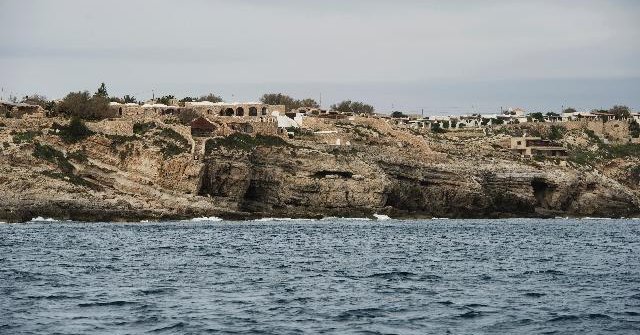Lampedusa, a small island in the Mediterranean between Tunisia and Italy, has become a major point of entry to Europe for illegal immigrants coming from Africa and the Middle East, ever since about 20,000 migrants have crossed the Mediterranean due to the turmoil in North Africa and the Middle East since January 2011. Most of the immigrants arriving in Lampedusa make the trip from Tunisia from which they are said to be fleeing because of the upheavals, but seeing as the unrests have mostly died down, it can only be assumed that these are economic refugees who are hoping for a better life in Europe. In addition, as the military action against Libya continues, there are fears that the numbers of refugees would become much bigger.
Italy Urging EU to Help
Unable to cope with the migrant influx, Italy has been urging the fellow EU member states to provide more assistance. In response, the EU border management agency Frontex has announced it will expand its two current maritime Joint Operations, Hermes and Poseidon. Initially focused around the Pelagic islands south of Sicily in the Mediterranean, Operation Hermes, which began on 20 February 2011, has been extended until the end of August 2011, and now covers the region of Sardinia. Meanwhile, Poseidon has been extended to the island of Crete, expanding its role in the Aegean Sea. The decision to expand the operations followed a European Council meeting on 25 March 2011, where it was stated that:
“...the Commission will make additional resources available in support to the agency’s 2011 Hermes and Poseidon operations and Member States are invited to provide further human and technical resources. The EU and its Member States stand ready to demonstrate their concrete solidarity to Member States most directly concerned by migratory movements and provide the necessary support as the situation evolves.” However, instead of providing further support France has announced that it would start border controls again to keep the migrants out of its country while countries like Germany and Austria made very clear in their statements that they do not intend to take any of the refugees who enter Europe through Italy referring to the European Union’s current regulation that the country where migrants first enter are responsible to handle their asylum claims.
EU Needs Concrete Action Plan
It is more than evident that the EU cannot rely solely on its border security agency Frontex to help Italy cope with the current migration crisis. What it needs is to put in place an action plan for the resettlement of refugees who have arrived at the Italian island of Lampedusa.
Earlier this month, European Parliament adopted a resolution calling the Council to set up a burden-sharing action plan, which would help solve this migration crisis in the Mediterranean. This would mean invoking Article 80 of the EU Treaty on the Functioning of the European Union (TFEU), which cites the principle of solidarity and fair burden-sharing among all Member States on policies relating to the management of border checks, asylum and immigration - including the financial dimension. In addition, the resolution called for the EU budget after 2013 to include “emergency and recovery funds” to allow a rapid response, and hence relief and assistance for migrants in distress as well as shelter in the EU for human rights defenders at risk.
With this resolution, Members of the European Parliament have recognized that the only possible solution that would prevent crises like this from happening again and to effectively prevent a mass influx of migrants is to create jobs and improve living conditions in the countries of origin and transit, but also to support SMEs, provide microcredit facilities, empower women and minority groups and maximise local economic development. Furthermore, the EU’s foreign policy should complement EU policies on migration whereas the funds that would be used for the achievement of this goal, should target both the country of origin and transit country.

1. On 27 April 2011 at 09:58, by Collis Gretton Replying to: Lampedusa, the stone in Europe’s shoes
Replying to: Lampedusa, the stone in Europe’s shoes
This article shared with our readers at trumpeter 4 europe
Follow the comments: |
|
